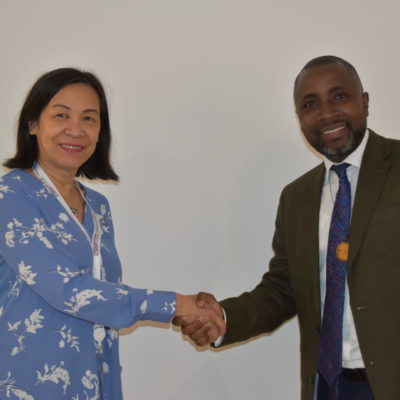Free the Slaves Policy and Research Associate Jody Sarich is featured on Big Think today, speaking about her research on forced marriage and its relation to slavery and human trafficking in China. With FTS President Kevin Bales, Sarich is currently writing the first ever book on forced marriage worldwide.
In many cases, forced marriages subject women and girls to conditions indistinguishable from those recognized by international and domestic laws as modern-day slavery. Although the U.N. Slavery Convention called servile marriage a “practice similar to slavery” over half a century ago, the enslavement of women into forced marriages remains one of the least understood (and most misunderstood) forms of modern slavery today.
Sarich and Bales’ groundbreaking book seeks to change that. They will show how the enslavement of women can be hidden within the institution of marriage—and what can be done to stop it. Through the voices of women and girls themselves, they will show how once-enslaved “brides” have found lasting freedom.
In March, Sarich will travel to South Africa to meet with survivors and local organizations—watch this space for updates!
Here is Jody Sarich’s interview with Big Think:
As many as 24 million Chinese men will be unable to find wives in 2020, say experts. In some areas there are already as many as 130 men for every 100 women. This gender gap, just one of the many consequences of China’s one-child policy, is driving many of the country’s men to look for wives through forced marriage and human trafficking.
Jody Sarich, an anti-slavery researcher and advocate, is currently writing a book on forced marriage with former Big Think expert Kevin Bales. Sarich told Big Think that while exact numbers aren’t available, studies and anecdotal evidence suggest that slavery and human trafficking are already huge problems in China.
“There is a great demand for women, especially in poor, rural areas,” says Sarich. “Certainly the gender gap is a major factor, but it is one factor among several that work together to make it such a problem in China. Working alongside that is the fact that there’s been a great increase in women’s economic empowerment and desire for education in China. So you have fewer women overall as well as more women who are choosing to be educated and to have jobs. In many cases they don’t see it as compatible to be married and work, so the women who do exist aren’t necessarily marrying at the same rate.
“An additional pillar of what is leading this problem in China, especially for foreign brides, is China’s policy of repatriating foreign women who are discovered—even though they’re victims of trafficking,” she says. And for women from North Korea, repatriation means a sentence to North Korean labor camps, which Sarich likens to concentration camps. This fear of repatriation makes trafficked women all the more vulnerable and keeps them from coming forward, she says. And there is now a generation of children born from these forced marriages who are also illegal and must remain invisible to the government. “These children are equally vulnerable to all sorts of exploitation, especially the girls but also the boys and young men,” says Sarich.



